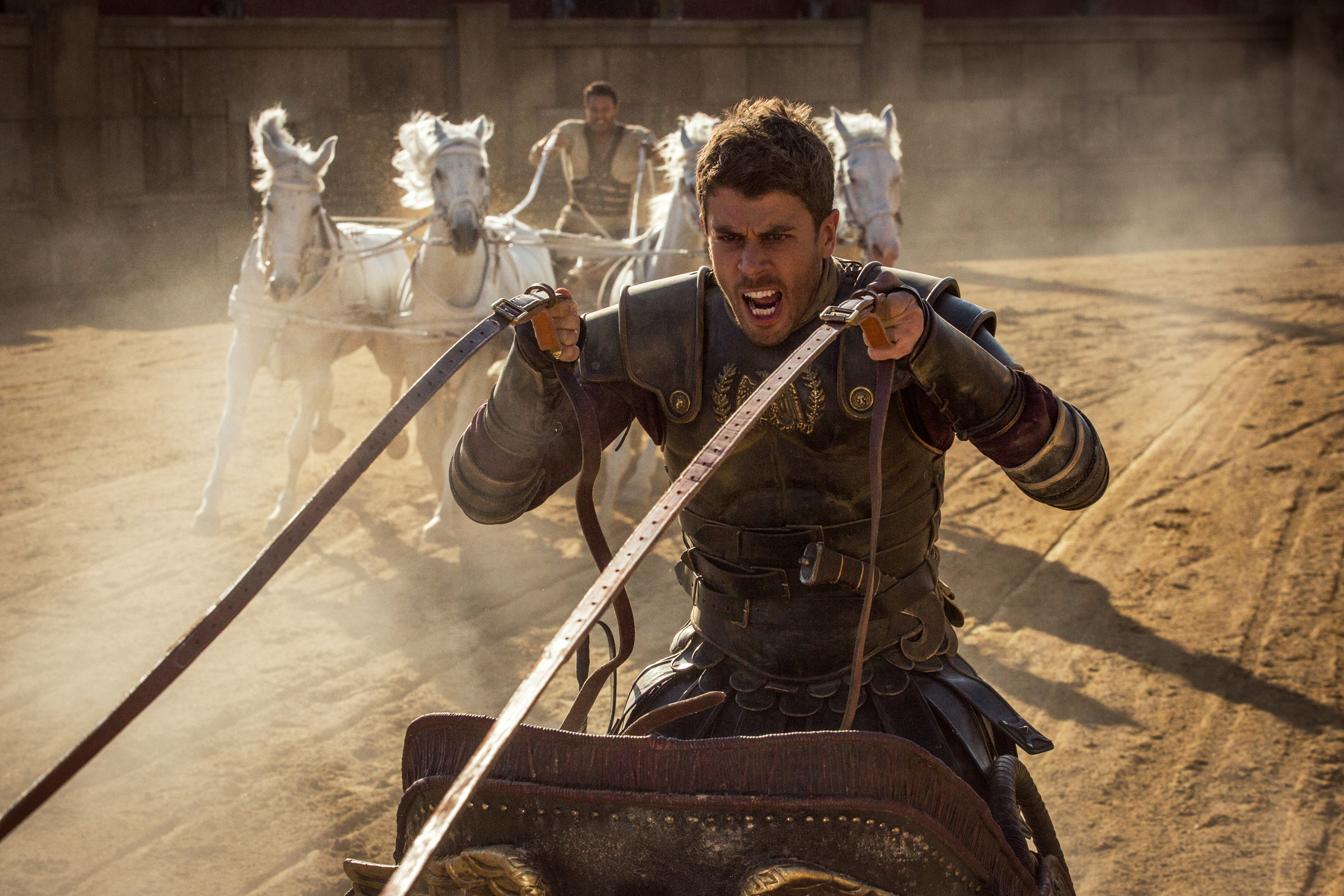To answer the most obvious question about Ben-Hur: The climactic chariot race is pretty spectacular.
Otherwise, to answer the next most obvious question about this latest cinematic retelling of the biblically-based redemption tale, pretty much everything else is lackluster, especially when judged alongside the iconic 1959 epic that won 11 Oscars.
Such a comparison might be unfair, yet it’s also inevitable. And other than that 15 minutes or so in the third act, the prior film makes this inferior effort — which lacks subtlety, emotional pull, and basic character development — seem rather pointless.
The story takes place during the time of Christ, when Judah Ben-Hur (Jack Huston) is a wealthy Jewish prince living in Jerusalem. Jealousy causes his estrangement from his childhood friend and adoptive brother, Messala (Toby Kebbell), who becomes an officer in the Roman army.
Messala’s betrayal causes Judah’s exile into a life of hard labor aboard a ship. He returns years later to seek revenge on the Romans and to rekindle his romance to a slave (Nazanin Boniadi). In order to capitalize on Massala’s ego-driven greed, Judah trains as a charioteer under the tutelage of Nubian sheik Ilderim (Morgan Freeman), culminating in a perilous chariot race that becomes a brutal battle for survival. “First to finish, last to die,” Ilderim tells Judah.
Russian director Timur Bekmambetov (Abraham Lincoln: Vampire Hunter) is no stranger to revisionist history with an emphasis on spectacle. And he stages the 3D action set pieces with a vivid sense of intimacy, including the famously harrowing sequence when Judah is enslaved as a galley rower. Kudos to the impressive swords-and-sandals stunt work along the way.
Yet the trite screenplay by Keith Clarke (The Way Back) and John Ridley (12 Years a Slave), based on the 19th century Lew Wallace novel, shortchanges much of the character depth and motivation that could add context to the story’s biblical connections or elucidate its faith-based themes of compassion and forgiveness — even when Freeman’s dreadlocked sheik offers reassuring words of wisdom while mentoring Judah.
Its story might be set about 2,000 years ago, but there’s nothing old-fashioned about this Ben-Hur. The previous film might have been long and lumbering, but it featured Charlton Heston’s charisma in the title role and provided some grand old Hollywood entertainment. This abridged effort, while sharing the big-budget scope, lacks much ambition outside of its highlight-reel window dressing.





